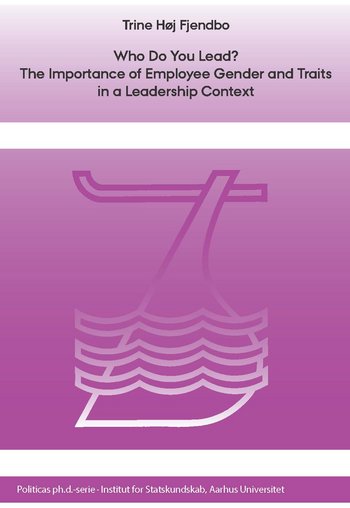Trine Høj Fjendbo
Who Do You Lead? The Importance of Employee Gender and Traits in a Leadership Context

This dissertation contributes to our knowledge about employee gender and gender-related personality traits (communal and agentic) in relation to leadership behavior (transactional and visionary). It answers how fit between an employee’s gender and traits and their manager’s gender, traits and leadership behavior affects the employee’s leadership perception, motivation, and manager preference. It thus focuses on two types of fit: fit between the employee and the manager and fit between the employee and leadership behaviors. Fit/similarity between manager’s and employee’s gender and personality traits could affect leadership perception, motivation, and manager preference. Leadership behaviors are argued to fit gender and gender-related traits differently, which could affect the employee’s motivation and manager preference. The dissertation indicates that communal and agentic traits are important elements in a leadership context, and that the importance of gender is more elusive. This is not to say that gender does not matter in a leadership context, as it mattered for leadership perception and motivation on occasion. However, communal and agentic traits might be more important in relation to fit with managers and leadership behavior. The results show that neither manager gender nor employee gender matters for manager preference, but that traits do. The results generally suggest that the employee’s gender and traits at least sometimes matter for fit with manager’s gender, traits, and leadership behavior, particularly the use of pecuniary rewards. For managers, this suggests that it is worth considering employees’ gender and gender-related traits if they wish to positively affect leadership perception, motivation, and preference.
![]() Ophavsretten tilhører Politica. Materialet må ikke bruges eller distribueres i kommercielt øjemed.
Ophavsretten tilhører Politica. Materialet må ikke bruges eller distribueres i kommercielt øjemed.